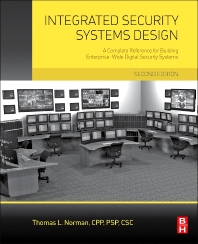Tort law defines standard of care as the degree of prudence and caution required of an individual who is under a duty of care (a legal obligation imposed on an individual requiring that individuals adhere to a standard of reasonable care while performing any acts that could possibly harm others). The requirements of the standard are closely dependent on circumstances.
A recent case before the appellate division of the Superior Court of New Jersey could have an impact on the industry. The plaintiff and her children resided in a second-floor suite at a hotel. Their primary means of ingress and egress to the suite was via a staircase that had a storage closet located under it, which contained wooden tables, chairs and foam cushions. The storage closet was not part of the hotel’s original construction; it was constructed at a later time and contained no sprinkler.
A fire occurred and spread to the storage closet and up the staircase to the second floor. The plaintiff and her children were unaware of the fire and became trapped when it reached their suite. Both children died and the plaintiff sustained serious injuries from smoke inhalation. The plaintiff filed a complaint against numerous individuals and entities, including the defendant who had inspected the sprinkler system and/or the fire alarm system.
The state of New Jersey adopted safety regulations promoted by the National Fire Protection Association (NFPA). NFPA 13 originally required the installation of sprinklers throughout the premises of residential buildings, including closets and storage places. However, NFPA 13R that was enacted subsequently did not require such installation. Nevertheless, the appendix to NFPA 13R warned as follows: “It should be recognized that the omission of sprinklers from certain areas could result in the development of untenable conditions in adjacent spaces. Where evacuation times may be delayed, additional sprinkler protection and other fire protection features such as detection and compartmentation, may be necessary.”
Additionally, NFPA 25 sets forth the requirement for inspecting sprinkler systems, and only requires a sprinkler inspector to conduct a visual inspection and verify that it appears to be in operating condition and free of physical damage.
The defendant filed motions for summary judgment arguing that NFPA 25 established the standard of care for inspecting sprinkler systems, claiming there was no evidence that it violated that standard. The plaintiff argued that NFPA 25 established only a minimum standard of care and compliance with it did not immunize the defendant from liability for negligence. The judge concluded that defendant’s compliance with NFPA 25 was dispositive on the issue of negligence and granted summary judgment on that basis. The plaintiff appealed.
The appellate judge pointed out that the New Jersey Supreme Court had made it clear that compliance with a safety regulation is not dispositive on the issue of negligence. Rather, the risk posed by dangerous hazards requires the use of reasonable care. Whether a defendant exercises reasonable care was a question of fact for the jury to decide. Similarly, the court concluded that the industry’s customs of inspection were evidence of reasonable care, but they were not dispositive on the issue of whether a defendant utilized the proper standard of care. While the defendant inspected the hotel sprinkler system over a matter of several years and noted that the building was “completely” sprinklered, the court pointed out, however, that this was inaccurate because for a building to be considered “completely” sprinklered, it had to comply with NFPA 13, requiring sprinklers in closets, which the hotel did not have.
Therefore, the court concluded that a reasonable care standard applied. Therefore the court indicated that there was a genuine issue of material fact relating to whether the defendant exercised reasonable care irrespective of compliance with safety regulations, making standard of care an issue a jury would need to address. Therefore the order granting summary judgment was reversed.
Question: I am selling my alarm company. The buyer insists that I guarantee that the number of accounts at the expiration of six months will not be less than the number of accounts which existed at the closing. Is this a common practice?
Answer: Every alarm company has some attrition. The actual number of accounts or the dollar value of the accounts will normally decrease from the number that existed at the date of the closing, unless you take into account the new accounts that are created after the closing. The bottom line is that it is a negotiation. In most instances where we have represented a buyer or seller, there is a “basket” or an agreement to the effect that if the attrition exceeds a certain agreed upon designated amount, then the seller would have to be responsible for the multiple of recurring revenue that exceeded the amount of the agreed upon attrition. In some instances the parties agree that the amount of the new accounts that are added after the date of closing will offset any attrition subsequent to the closing.
Bottom line, this comes down to a negotiation between the buyer and the seller and becomes part of the purchase agreement.







